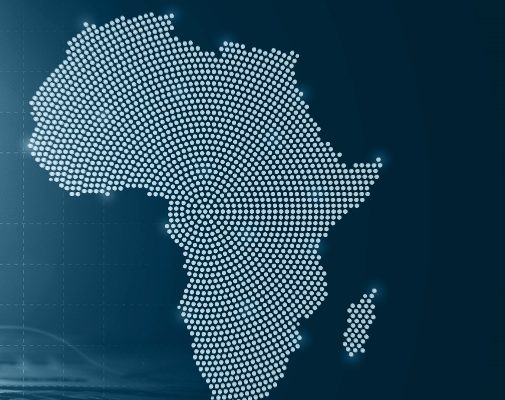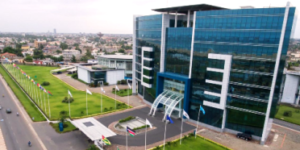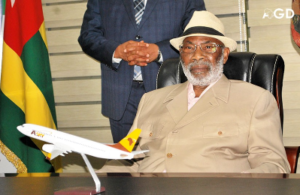By Eric Osiakwan and Yaw Owusu
Ecobank Transnational Incorporated (ETI), better known as Ecobank is a multinational African enterprise in the banking sector started in Lome, Togo with current operations in 36 African countries and representative offices in London, Paris, Beijing and Dubai. Shares of the pan-African banking conglomerate are traded on the Ghana Stock Exchange (GSE), Nigeria Stock Exchange (NSE) and the Côte d’Ivoire-based Bourse Régionale des Valeurs Mobilères SA (BRVM), a stock exchange for eight Francophone West African countries, featuring; Benin, Burkina Faso, Guinée-Bissau, Côte d’Ivoire, Mali, Niger, Sénégal and Togo.
RELATED: Sustainability or extinction: What African enterprises need to know about the next ten years
The principal Ecobank shareholders include Nedbank (21.2%), Qatar National Bank (20.1%), Arise B.V (14.1%), Public Investment Corporation (PIC) (13.5%), Social Security & National Insurance Trust (SSNIT) of Ghana (3.86%) and Alain Francis Nkontchou (1.06%).[1]
Ecobank was established in 1985 in response to the urgent financial needs of entrepreneurs across West Africa to serve both Anglophone and Francophone markets. The initiative originated from the Federation of West African Chambers of Commerce & Industry (FEWACCI), a regional body that promotes economic cooperation and development.
A bank for unique financial needs of entrepreneurs across West Africa
The Federation’s vision of creating a private regional banking institution was embraced by the bank’s founders, including Gervais Koffi Djondo of Togo and Adeyemi Lawson of Nigeria. Their goal was to facilitate trade and enhance economic development within the region, a vision solidified at a meeting in Mali in 1972 where the concept of a private sector institution was first debated.
In October 1985, ETI was incorporated with an authorized capital of US$100 million, backed by initial paid-up capital of US$32 million sourced from over 1,500 individuals and institutions throughout West Africa. The ECOWAS Fund for Compensation and Development was the largest shareholder, underscoring the bank’s regional focus right from its early days. The Togolese government granted ETI the status of an international organization, enabling it to operate as a non-resident financial institution with the necessary privileges and rights.[2]
The founders – Gervais Koffi Djondo, Adeyemi Lawson and Philip Asiodu – envisioned an indigenous African banking enterprise that would unite and serve the African continent, so they brought in Arnold Ekpe, a key figure in the bank’s early success, establishing a robust banking presence in Nigeria, Ivory Coast and others. Throughout the late 1980s and early 1990s, Ecobank continued to expand its network, focusing on fostering economic integration and offering innovative financial services tailored to the unique needs of the region’s diverse markets.[3]
Birth of Asky: A private, competitive, cost-effective airline
In 2005, Gervais Koffi Djondo took to the skies to create a multinational African air passenger carrier, Asky Airlines, with Togo as its headquarters and Mr. Djondo as president.[4] At a conference of the Economic Community of West African States (ECOWAS) and the West African Economic and Monetary Union (UEMOA), hosted in Niamey, Niger on 10 January 2004, the group decided to establish a private, competitive, cost-effective airline offering all guarantees of safety and security for the region.
The following year, Gervais seized the opportunity and brought in Ethiopian Airlines as technical and strategic partner under a management contract for the first five years of operation, holding a 40% stake.[5] Asky Airlines took after the ethos of the award-winning Ethiopian Airlines, a multinational African enterprise owned by the Ethiopian government since its formation in 1945 by Emperor Haile Selassie.
Rise and rise of MTN Group
MTN Group Limited (formerly M-Cell) is a South African multinational enterprise and mobile telecommunications provider. With a market capitalization of $12.9 billion, MTN is among the largest mobile network operators in the world, and the largest in Africa. The company is active in over 20 countries including Asian countries like Syria, with one-third of company revenue generated in Nigeria.[6] Armed with 288 million mobile subscribers and 20 million mobile money subscribers, the world’s 10th largest mobile network operator by subscriber base, MTN, is listed on the stock exchanges in South Africa, Nigeria, Ghana, Rwanda and the UK.
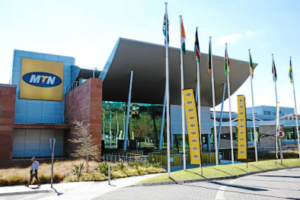
MTN Headquarters in South Africa
In 1994 after Nelson Mandela was sworn in as the first democratically-elected President of South Africa, the first call was made on the MTN network, heralding a promising beginning with the help of the South African government. In 1995, it replaced its then CEO, John Beck, with Robert (Bob) Chaphe and founder Leena Jaitley. In 2001, the company announced Johnnic Holdings as its controlling shareholder, with Irene Charnley as the chairperson. In 2002, Phuthuma Nhleko became the Chief Executive, replacing Paul Edwards, who had invested in MTN’s expansion into Nigeria.[7]
African enterprises enter the era of mergers and acquisitions
Some of these multinational African enterprises are a result of mergers and acquisitions and not necessarily organic growth. Case in point is the merger of Wasoko of Kenya and Egypt’s MaxAB to form Africa’s largest tech merged enterprise ever, creating a powerful Business to Business (B2B) e-commerce platform spanning Kenya, Tanzania, Egypt, and Morocco.[8] The two companies affirm that the all-stock transaction heralds “an evolution from B2B e-commerce companies to a multi-vertical ecosystem for Africa’s $600 billion informal retail sector.”
The blockbuster deal comprised integrating 16 subsidiaries in Africa, Daniel Yu, co-CEO of the combined firm, recently announced in an interview with Tech Crunch. Silver Lake, Avenir, Tiger Global and British International Investment (BII) collectively invested over $240 million in Wasoko and MaxAB before the merger. The two firms provide e-commerce solutions for mostly small informal retailers to order inventory from suppliers and receive quick deliveries, typically on the same day. The new venture has a massive 450,000 merchants serving over 65 million customers and more than 4,000 full-time employees.
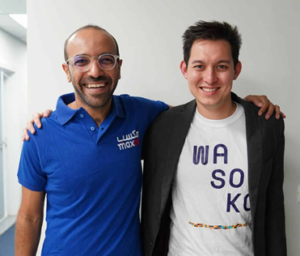
In 2005, Tony Elumelu of Heirs Holdings led the acquisition of Standard Trust Bank (STB) by United Bank for Africa (UBA) – it was one of the largest mergers in the banking sector in Sub-Saharan Africa and UBA has since expanded its footprint to 19 African countries. By the end of 2025, UBA intends to expand throughout Africa and establish a branch in Saudi Arabia. Africa is poised to register more of such mega deals as the last business frontier continues to attract groundbreaking investments from its increasingly wealthy citizens and well-funded businesses and global financiers seeking promising returns on investment.
In an essay titled “Leveraging Africa’s Inner Strength to Realize Its Full Economic Potential,” McKinsey Africa executives Acha Leke, Omid Kassiri and Mayowa Kuyoro, and Landry Signé from The Brookings Institution wrote:
“The question is no longer whether Africa will rise to meet the demands of a rapidly globalizing world, but how it will do so while building on its inherent strengths. It is home to the world’s youngest and fastest-growing population, fast-growing cities and bold innovations in everything from fintech to clean energy.”[9]
[1] https://en.wikipedia.org/wiki/Ecobank_Group
[2] https://oacases.com/index.php/cases/article/view/9/25
[3] https://ecobank.com/group/about-us/who-we-are
[4] https://web.archive.org/web/20151224102131/http://uk.reuters.com/article/uk-africa-economy-togo-insight-idUKKBN0OR0HW20150611
[5] https://en.wikipedia.org/wiki/Asky_Airlines
[6] https://en.wikipedia.org/wiki/MTN_Group
[7] https://group.mtn.com/who-we-are/history/
[8] https://www.cnbcafrica.com/media/6361193085112/how-wasoko-maxabs-tech-merger-is-reshaping-africas-b2b-fintech-landscape/
[9] https://www.brookings.edu/articles/leveraging-africas-inner-strength-to-realize-its-full-economic-potential/


